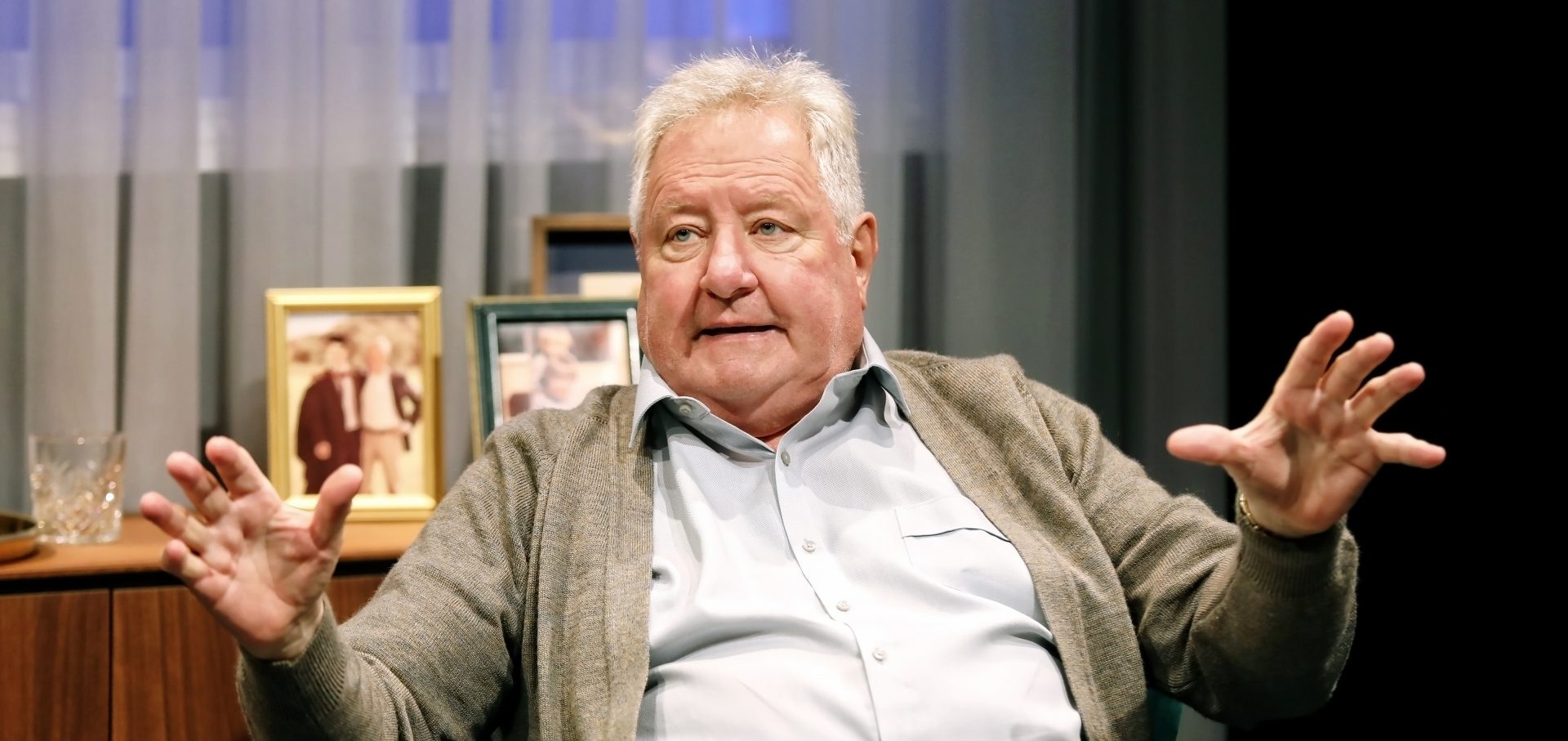A fine swan song for the finest playwright Australia has ever seen.
David Williamson’s final foray into theatre is a testament to a 50-year career. Balancing comedy with drama on the fine line he essentially created, Ensemble Theatre’s Crunch Time is a show you cannot miss.
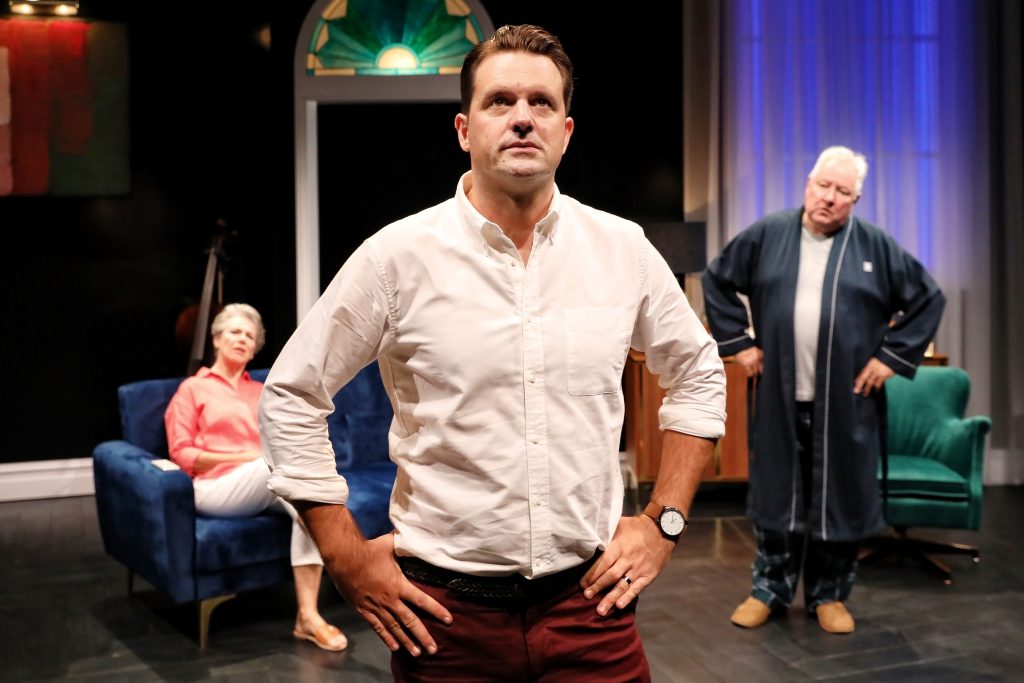
Concerning itself with the politics of the narrative’s family – comprised of the wealthy Steve (John Wood), his patient wife Helen (Diane Craig), their youngest son, the personable and charismatic Jimmy (Matt Minto), his polar opposite older brother Luke (Guy Edmonds), and their deceptive partners Susy (Megan Drury) and Lauren (Emma Palmer) – Steve’s pancreatic cancer diagnosis forces residual transformations in those closest to him.
And there’s not a weak performance from anyone.
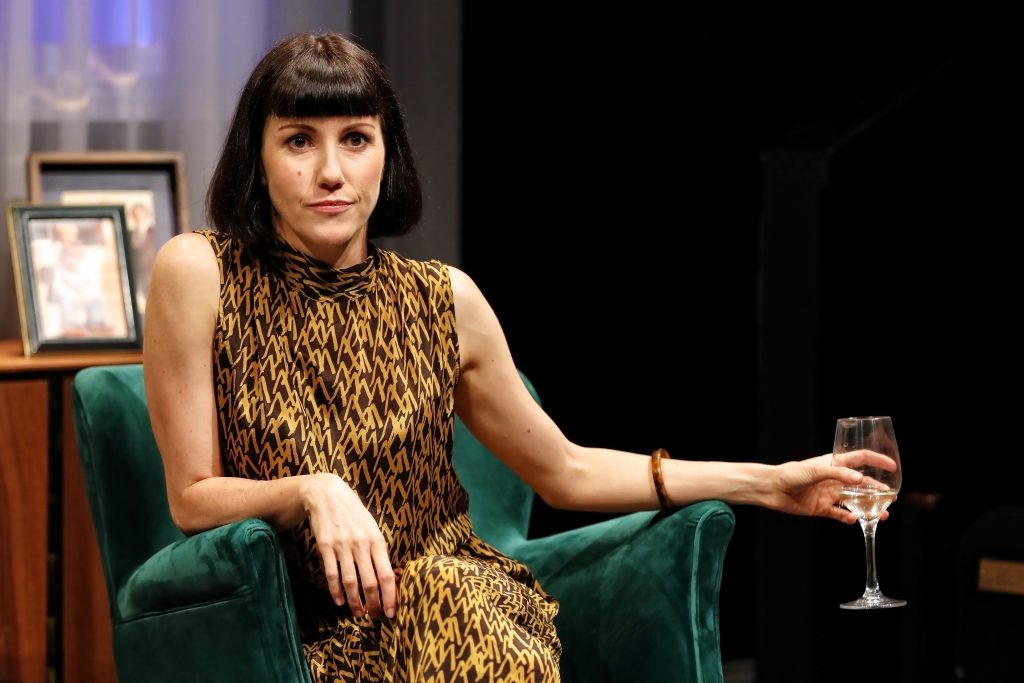
Indeed, every actor nails the caricatures and quirks of their characters to successfully portray the three-dimensional beings envisioned by Williamson. Their transformations are by no means subtle, but in this instance it’s better that they’re not.
The most pleasing thing about the cast is that there is no stand-out. Different audience members will prefer different characters, but without losing an appreciation for the effort put in by the entire cast. Which is ultimately what acting in an ensemble is all about.
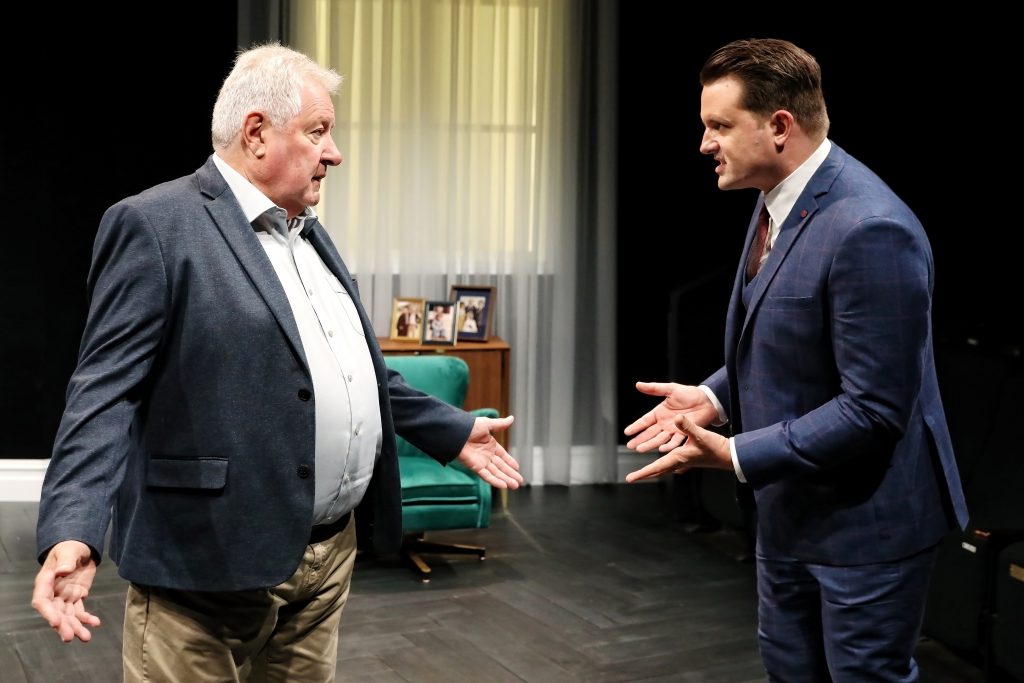
With that in mind, I particularly commend Minto and Edmonds. Tasked with the most difficult character arcs and the most humorous of Williamson’s dialogue, both hold a presence that is immensely watchable at any stage of their sleazy and secluded journeys respectively. Minto’s pre-interval invigoration of Edmonds’ wardrobe is unmissable.
Though we see less of the other cast, nothing about their stories seem rushed in Williamson’s script. This is particularly the case for Craig and Drury, whose characters don’t do much after interval, and somewhat for Wood, but their measured performances make them equally memorable. Wood’s final scenes with his family are easily the play’s emotional highlight.
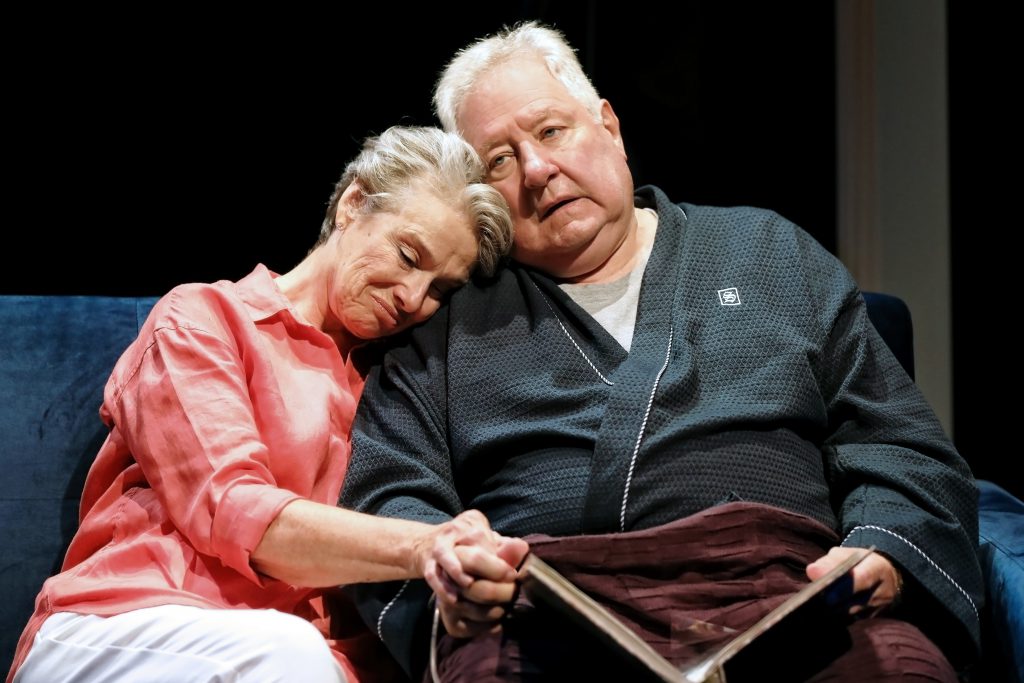
Yet, though director Mark Kilmurry utilises Ensemble Theatre’s various exits and entrances to push the time-bending play forward quickly, this progression is the only real shortcoming.
Chronologically, Crunch Time takes place over several years. However, the acknowledgment of this is simply confined to the cast uncharacteristically emphasising how much time has passed since they last ‘saw’ another. This draws both laughter and discomfort from the audience at different points, who are noticeably startled at the announcement.
Also, though usually played off well, it was unfortunate to see Williamson’s play extend a scene longer than (but for to tie up loose ends and give a happy ending) it should have. Admittedly opinion will be divided on this final point, but I personally would have preferred the play finish on an emotional climax than a soft denouement.
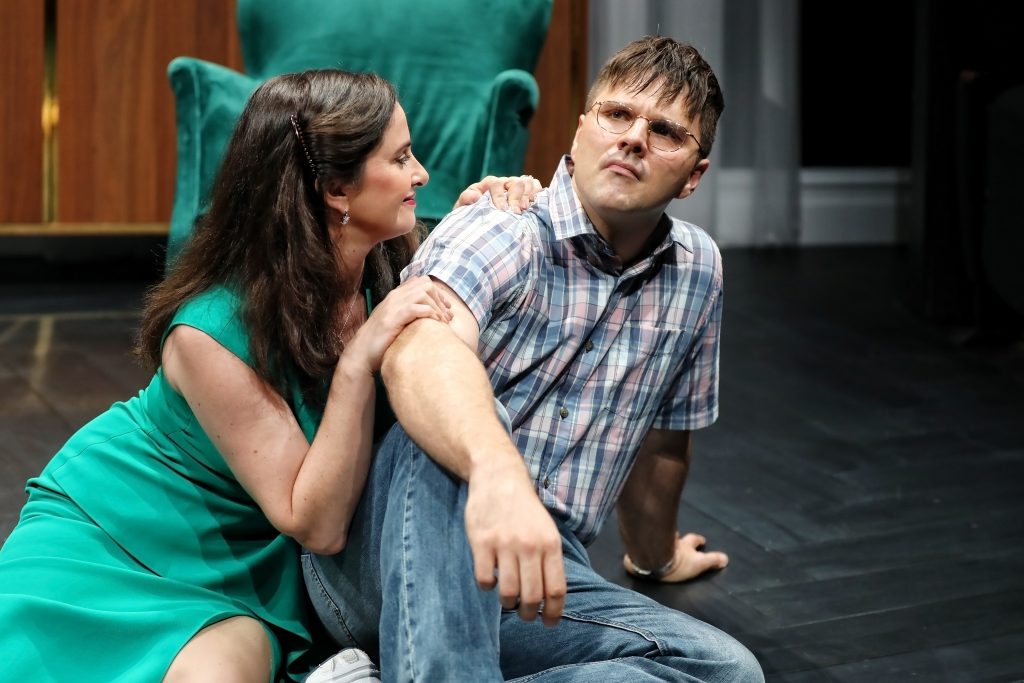
In any case, there is no good reason not to see this show. My sole quarrel is subjective, and one that does not detract from the self-evident casting, directorial, and script-based strengths of Crunch Time. Williamson can rest easy knowing his 57th and final play is in safe hands.
